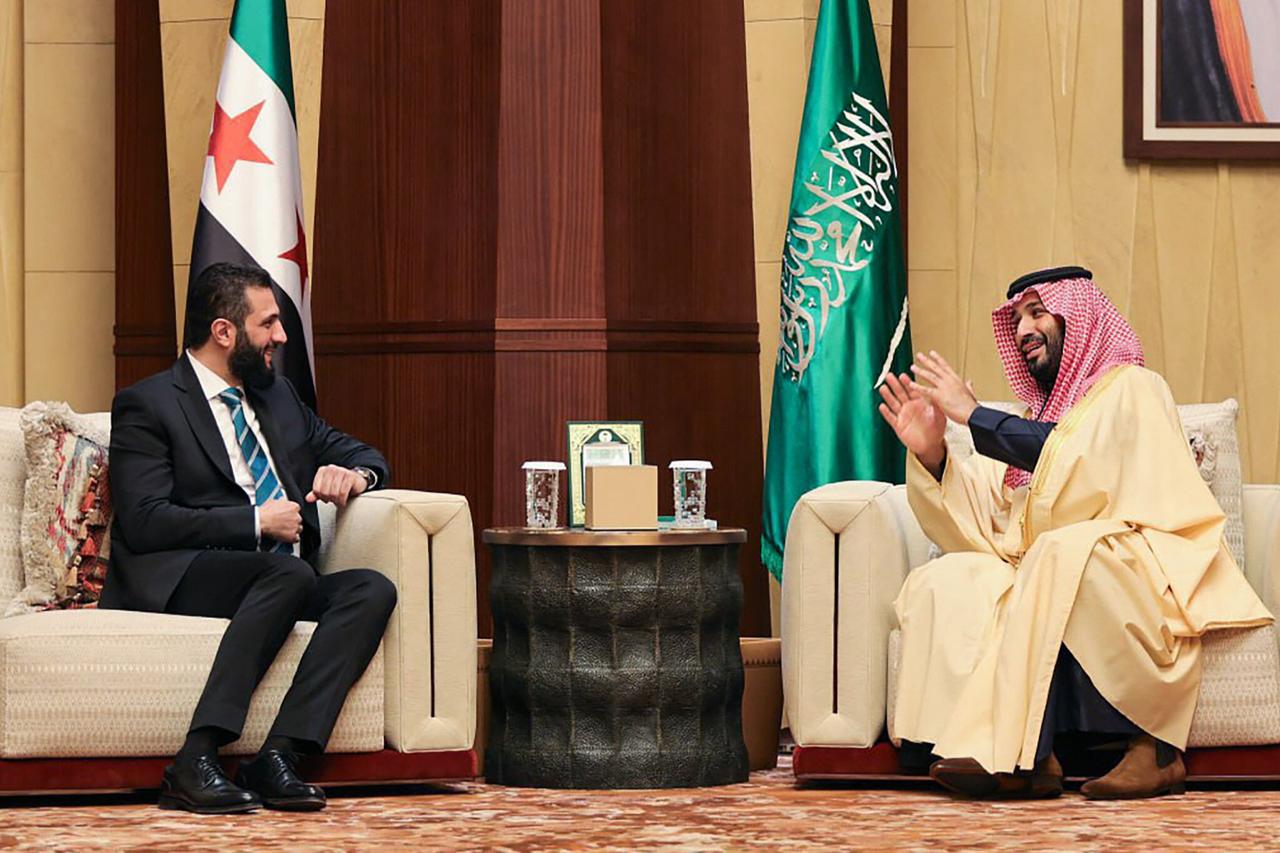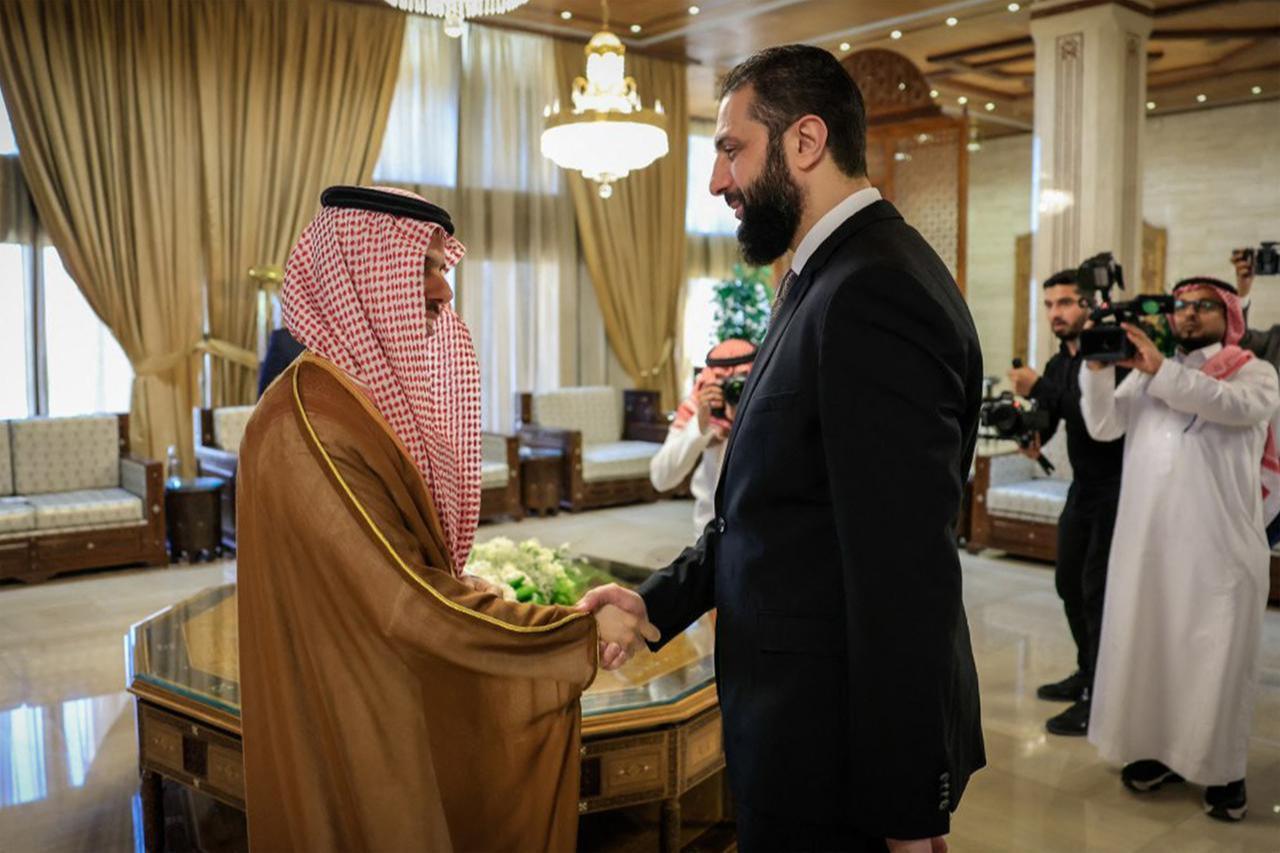
For more than a decade, Syria has been the battlefield where rival powers test their influence, leaving its people exhausted by proxy wars, destabilization, and endless foreign agendas.
Today, as Türkiye and Israel escalate their rivalry on Syrian soil, the question is no longer whether Syria should accept outside support, but which additional partners can be brought to boost its stability, sovereignty, and security.
The answer lies in Riyadh.
Türkiye has carved out a position as Damascus’ military partner of convenience—offering joint training, advisory missions, and promises of defending Syrian territory. Yet Ankara’s role is shaped primarily by its domestic security priorities and regional security. For Israel, "unbalanced" Turkish influence is a red line. That makes Syria the unwilling chessboard of a confrontation between two regional powers—one that Ankara seeks, and the other Tel Aviv refuses to accept.
In this environment, Syria benefits from expanding its partnerships beyond Türkiye alone.
For Ankara, Syria remains an important partner for regional security and stability. Turkish bases, training programs, and advisory missions have contributed to strengthening Syrian defense capabilities. At the same time, broader regional rivalries—including tensions involving Israel—have occasionally led to military incidents over Syrian territory. Recent strikes in and around Damascus affected Syrian forces and infrastructure, underscoring the challenges of navigating these complex dynamics.
Türkiye has responded through coordinated measures, including airspace management and defense cooperation with Damascus, to help safeguard Syrian sovereignty. In this context, Saudi Arabia’s entry into Syria represents an opportunity to broaden support and provide additional resources, complementing Türkiye's contributions and helping Syria build a more resilient path toward stability.
The dynamic of rivalry with Israel is not the product of Turkish intentions, but of broader regional rivalries that inevitably accompany Ankara’s involvement. For Damascus, this underscores the importance of balancing Türkiye’s role with additional partnerships that can insulate Syria from such confrontations.

Saudi Arabia: Expanding Syria’s options to stability
If Syria is to achieve lasting stability, it needs partners whose involvement goes beyond immediate security needs and focuses on long-term peace. Saudi Arabia can play that role.
Riyadh’s ambitions in Syria are centered on creating conditions for stability and reconstruction. This does not exclude cooperation with Türkiye—on the contrary, Saudi Arabia’s approach could complement Ankara’s security-focused role, allowing both to contribute in ways that reinforce Syria’s sovereignty while reducing exposure to regional rivalries.
Saudi Arabia’s reconstruction efforts and diplomatic engagement in Syria are significant and commendable, yet there is also scope for involvement in more substantial areas. For example, exploring the possibility of providing military supplies or intelligence support—and moving beyond a cautious posture—could offer a stronger and more thought-provoking perspective. The Saudis are fully capable, and this may be an opportunity for them to demonstrate strength across the region and counter destabilizing actors.
Saudi Arabia has the capacity, legitimacy, and vision to take on this role.
1. Military and strategic capacity
The Kingdom’s armed forces are among the most advanced in the Arab world, with modern air-defense systems, strong ties to Western militaries, and decades of experience in coalition building. Saudi Arabia can provide Syria with the tools to defend its sovereignty while complementing Türkiye’s security-oriented presence.
2. Financial power and reconstruction
Stability is not only about weapons. It is also about rebuilding schools, hospitals, and cities that have been destroyed by war. Here, Riyadh brings unparalleled resources. The Kingdom can combine military support with investments in Syria’s reconstruction, ensuring that security is matched with prosperity. Saudi backing can be holistic—securing both Syria’s borders and its future.
3. Regional legitimacy
Saudi Arabia is not just another regional actor. It is the heavyweight of the Arab world, the guardian of Islam’s holiest sites, and a country that carries unique political and moral influence. Its decision to ally with Syria militarily would not only strengthen Damascus but also send a clear message across the region: the era of proxy wars and foreign destabilization is over.
A signal to the region
If Riyadh steps into this role, it would reshape the Middle East’s political weather. Syria would no longer be defined by the confrontations of outside powers but instead protected by the strongest Arab state, backed by a partner whose stability agenda is shared by most of the region.
This would also advance Saudi Arabia’s broader diplomatic strategy. Vision 2030 is about transformation—but transformation requires peace. A prosperous Riyadh cannot exist in a burning neighborhood. By becoming Syria’s guarantor of stability, Saudi Arabia would accelerate its own project of building a Middle East defined by trade, integration, and opportunity rather than conflict.
For Syria, it would mean more regional integration and the chance to strengthen partnerships on its own terms. For the region, it would mean reclaiming ownership of its own security, after decades of letting foreign superpowers define the region’s future.
Beyond the strategies and alliances, this is about people. Syrian families deserve to rebuild their lives without fearing the next airstrike launched in someone else’s name. Syrian soldiers deserve to defend their country without being caught in the crossfire of regional feuds. And the youth of the Middle East deserve a future where Damascus, Riyadh, Ankara, Amman, and Cairo are building opportunities together, not burying their dead from proxy wars.
Türkiye’s involvement has provided Syria with valuable support, and with Saudi Arabia stepping in as a partner, there is now an opportunity to broaden that foundation and reduce the impact of wider regional rivalries on Damascus’ path to peace.
The time has come for Syria and Riyadh to move beyond symbolic gestures and formal visits. A genuine military alliance—combining defense, intelligence, and reconstruction—would not only secure Syria’s sovereignty but also anchor the stability of the entire region. It would make clear to Israel, Türkiye, and every other outside actor: Syria is no longer a playground for rivalries. It is the cornerstone of a peaceful Middle East.
And in that message lies the true spirit of Vision 2030—a future where Arab states take charge of their destiny, where prosperity is built on peace, and where the people of Syria and the wider region finally see the stability they deserve.